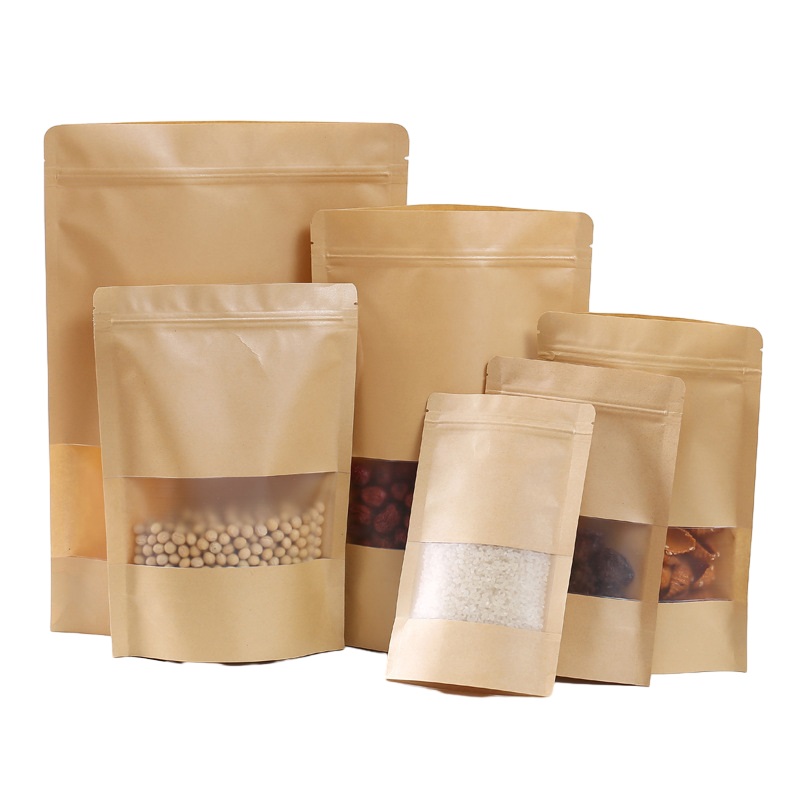In recent years, there has been a growing awareness of the environmental impact of plastic bags, leading to a shift towards more sustainable alternatives such as Kraft Paper Bags. These bags offer several environmental advantages over traditional plastic bags, including biodegradability, recyclability, and sustainability. In this article, we will explore and compare the environmental benefits of Kraft Paper Bags and traditional plastic bags, highlighting their respective contributions to environmental conservation and sustainability.

1.Biodegradability:
One of the key environmental advantages of Kraft paper bags is their biodegradability. Unlike traditional plastic bags, which are made from non-biodegradable materials such as polyethylene, Kraft paper bags are composed of natural fibers derived from wood pulp. As a result, Kraft paper bags can decompose naturally over time when exposed to environmental conditions such as moisture, sunlight, and microorganisms. This biodegradation process reduces the accumulation of waste in landfills and minimizes the impact on ecosystems, making Kraft paper bags a more environmentally friendly option.
2.Recyclability:
Another significant environmental advantage of Kraft paper bags is their recyclability. Kraft paper is a highly recyclable material that can be processed and reused to create new paper products, including paper bags, packaging materials, and cardboard boxes. In contrast, traditional plastic bags are often difficult to recycle due to their composition and can contaminate recycling streams if not properly sorted. By choosing Kraft paper bags over plastic bags, consumers can support recycling initiatives and contribute to the circular economy by reducing the demand for virgin materials and minimizing waste generation.
3.Sustainability:
Kraft paper bags are also more sustainable than traditional plastic bags in terms of resource consumption and environmental impact. The production of Kraft paper bags requires fewer resources and energy compared to plastic bags, as paper is derived from renewable sources such as trees, whereas plastic is derived from finite fossil fuels. Additionally, the manufacturing process for Kraft paper bags generates fewer greenhouse gas emissions and pollutants, further reducing their environmental footprint. By opting for Kraft paper bags, businesses and consumers can promote sustainable practices and reduce their carbon footprint, thereby contributing to global efforts to combat climate change and preserve natural resources.
In conclusion, Kraft paper bags offer several environmental advantages over traditional plastic bags, including biodegradability, recyclability, and sustainability. By choosing Kraft paper bags, consumers can reduce the environmental impact of their shopping habits and support sustainable practices in the packaging industry. As awareness of environmental issues continues to grow, the adoption of Kraft paper bags as a viable alternative to plastic bags is likely to increase, leading to a more sustainable and eco-friendly future for generations to come.



